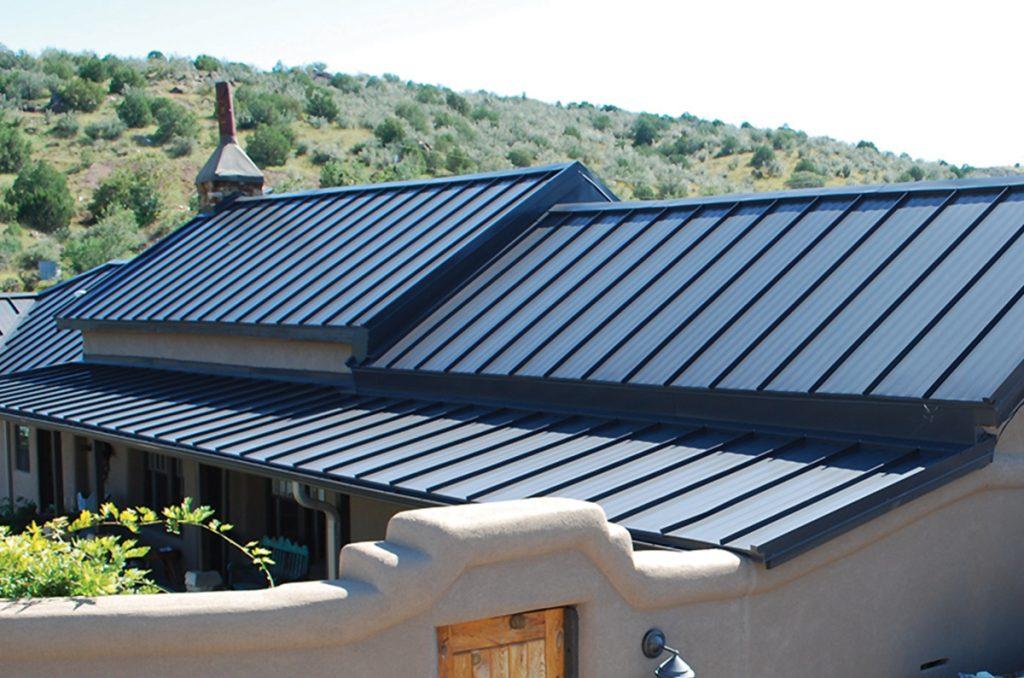Metal roofs have gained popularity for their durability, energy efficiency, and aesthetic appeal. However, one common concern that homeowners often have is whether metal roofs are noisier than traditional shingle roofs, particularly during rain or hailstorms. In this article, we’ll explore the factors that influence the noise levels of metal roofs compared to shingle roofs and provide insights into the reality behind this perception.

Understanding the Noise Perception
Why Metal Roofs Might Seem Noisier
The perception that metal roofs are louder than shingles roof primarily stems from the following reasons:
1. Material Properties
Metal roofs are made of solid metal sheets or panels, which can transmit sound more effectively than the layered structure of asphalt shingles. When raindrops or hail hit the surface of a metal roof, the sound can resonate more audibly.
2. Attic Design
The acoustics within the attic space can influence the perceived noise levels. A well-insulated and ventilated attic can help dampen sound, while an inadequately insulated attic may amplify noise.
3. Comparisons to Shingles
Metal roofs are often compared to traditional asphalt shingle roofs, which are known for their sound-dampening properties. Shingles can absorb and muffle the impact of rain and hail, making them seem quieter in comparison.
Factors Influencing Metal Roof Noise
Several factors can affect the noise levels of a metal roof:
1. Roof Structure
The design and construction of the roof structure can influence noise transmission. A solid sheathing or decking beneath the metal roofing material can help reduce noise, while an open framing system may allow more sound to pass through.
2. Roof Insulation
Proper insulation in the attic can significantly reduce noise transmission. Adequate insulation materials, such as fiberglass or cellulose, can absorb sound and create a quieter indoor environment.
3. Roof Underlayment
The type of underlayment used beneath the metal roofing material can impact noise levels. Some underlayment materials, such as synthetic or rubberized options, can help dampen noise.
4. Roof Coatings
Certain metal roofs are coated with sound-dampening materials to minimize noise. These coatings can be effective in reducing the perceived noise levels during rain or hailstorms.
Reality Check: Are Metal Roofs Louder?
While metal roofs may seem louder during rain or hail, the reality is that they don’t have to be significantly noisier than shingle roofs. Properly installed and insulated metal roofs can offer a comfortable and quiet living environment.
1. Rain Noise
Metal roofs can produce a different sound when raindrops hit them compared to the soft pattering of rain on shingles. However, with proper insulation and underlayment, many homeowners report that the noise is no louder than what they were accustomed to with shingle roofs.
2. Hail Noise
Hail hitting a metal roof can produce a more audible noise compared to shingles. However, modern metal roofs are designed to be impact-resistant and often meet industry standards for hail resistance.
3. Wind Noise
Some concerns about wind noise with metal roofs may arise due to improper installation or the choice of metal panels. Properly installed metal roofs should not produce excessive wind noise.
Conclusion
The perception that metal roofs are significantly louder than shingles roof is often based on outdated information or misconceptions. With advancements in roofing technology, insulation, and underlayment materials, modern metal roofs can provide a comfortable and quiet living environment. If noise is a concern for you, discuss it with your roofing contractor, and consider insulation options that can help mitigate any potential noise issues. Ultimately, the benefits of a durable and energy-efficient metal roof can outweigh any minor noise differences, making it a viable and long-lasting roofing option.



Leave a Reply